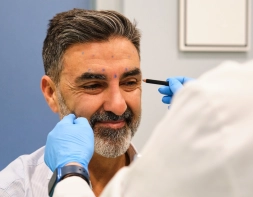
Our guidance, for
your best cover
The care, expertise and range of insurance policies to
ensure you get all the cover you need.

Personal
Insurance
Enjoy the peace of mind that comes from knowing you have all the cover you need.
View Products

Business
Insurance
We’ll listen to your needs, explain all the options, and tailor a business package to suit you.
View Products

Health &
Wellbeing Insurance
In depth, specialist cover for counsellors, therapists, instructors, coaches and more.
View Products

Mobile Home &
Caravan Insurance
Experts in advising, guiding and delivering on specialist mobile home and caravan policies.
View Products

About OBF
Expert insurance policies, with a personal touch. For more than five decades, we’ve helped our customers get the home, life and business cover they need, making sure they are financially protected when life or business lands a blow.

Aesthetic Insurance
11 Aug 2025
Polished and Protected: New Partnership to Insure Your Business in the Beauty Industry
Businesses in the Irish beauty industry now have a simplified insurance option offered by OBF in partnership with iSure Underwriting.
Read More

Medical Malpractice
11 Jun 2025
Aesthetics Insurance: A Guide to Reducing Risk in the Beauty Business
Aesthetic treatments are constantly evolving. As demand for non-surgical beauty procedures increases, aesthetic practitioners face the combined challenge of training to learn new skills while also navigating the additional risks that accompany each intervention.
To help you stay protected when providing innovative treatments, you will need to take out aesthetics insurance to cover both you and your practice against dissatisfied clients.
Just as the aesthetic treatments you offer can range in intensity, however, aesthetics and cosmetics insurance can vary in the level of cover provided. Balancing and mitigating the risks involved often requires specific insurance to cover the treatments you deliver.
Read More
Here to help
Tell us all about the protection you need, and we’ll guide you on your ideal insurance options.
Email: info@obf.ie
Call: +353 1 660 1033